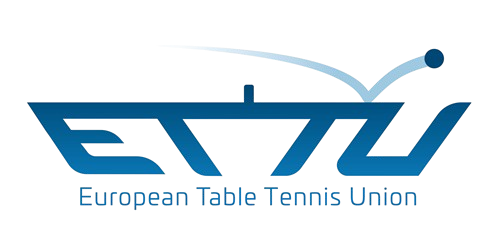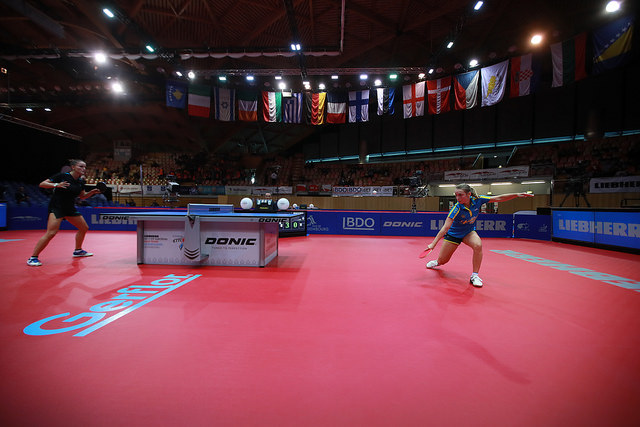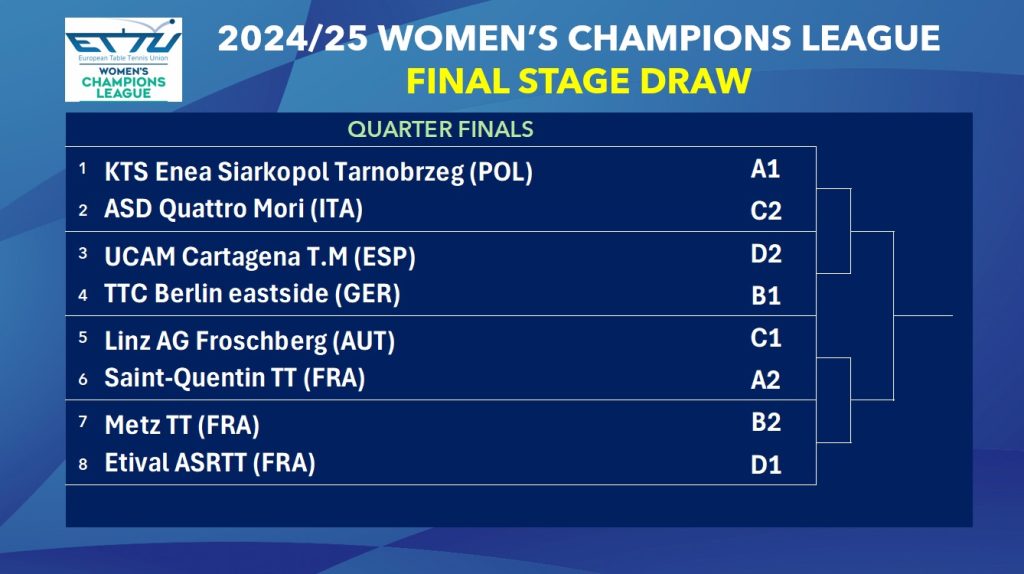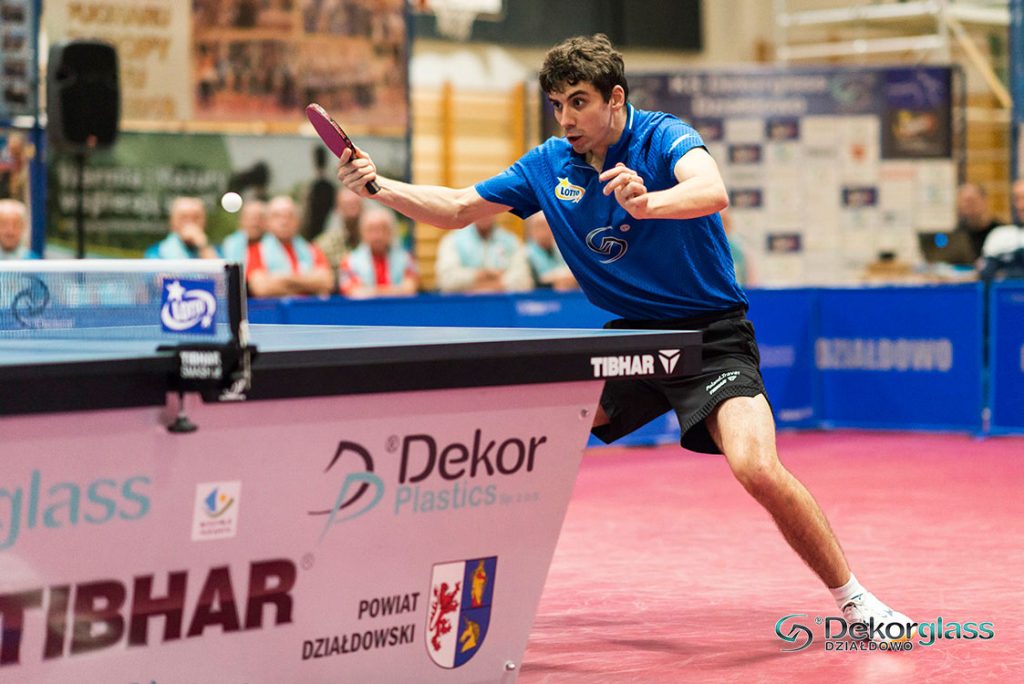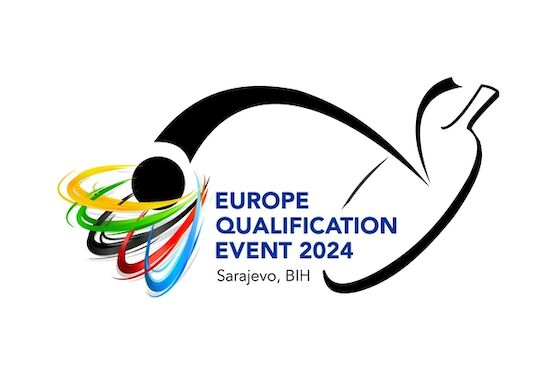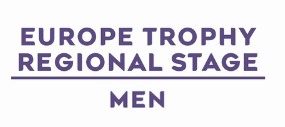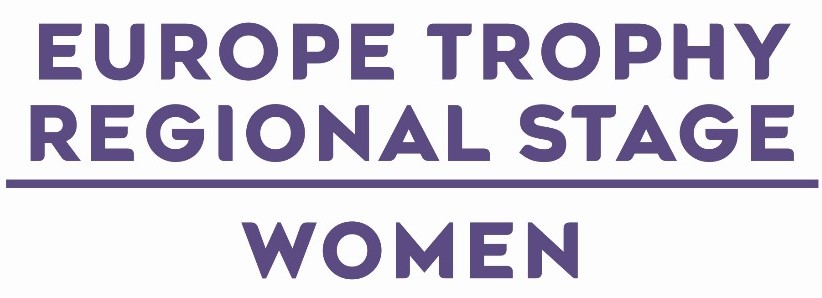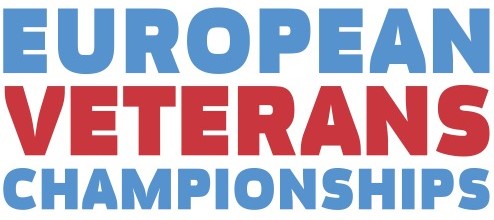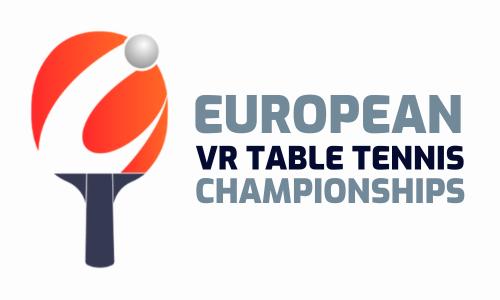Starting from 2018 the European Teams Championships will be played over a period of two years and be concluded with the final stage with 24 men’s teams and 24 women’s teams in odd numbered years.
The European Teams Championships will commence in the preceding year with stages one and two. They will be played over a period up to 18 months. The winner of the previous European Championships and the host for the final stage of the Championships will not take part in Stage One and will proceed directly to the final stage of the Championships.
There will be Groups A and B. Groups A will be with 18 teams those who finished in position 2-19 (or 2-20 if the host finished among those positions) of the previous Championships. There will be six groups each of three teams. They will play a double round robin with two home matches and two away matches. The six group winners and six group runners up will proceed directly to the final stage of the Championships. The position 3 teams will proceed to Stage Two to compete for the remaining places in the final stage.
All other entered teams will play in Groups B. There will be groups with three or four teams depending on the number of entered teams. They will play a double round robin with home and away matches. Depending on the number of groups 8 10 or 12 teams from the Groups B will proceed to stage 2 to compete for the remaining 10 places in the final stage (together with the six teams from the Groups A).
In Stage Two six teams from the Groups A and at least eight from the Groups B will play in Stage Two for the remaining 10 places (or 11 places if the winner of the previous European Championships will be the host for the final stage of the Championships) in the final stage. There will be groups with three or four teams. The matches will be played with a round robin system during one weekend and one host per group for the remaining 10 places in the final stage.
The final stage will be organised in September or October over a period of 6 days. The winner of previous European Championships the host Association and 22 teams which have proceeded through stage 1 and stage 2 will contest the final stage.
Those 24 teams are entitled to play for the title of European Team Champion. There will be eight groups of three teams each. Will play a complete round robin (2 matches per team). Teams finishing in 2nd and 3rd positions in the groups have completed their matches. Group winners proceed to the quarter-finals. From the quarter-finals the knockout system will be used. The winner will be the European Champion.
The aim of this change is to have a more exciting European Championships to attract more attention from media spectators and TV/internet. The European Championships start with the First Stage and all the participating associations has the possibility to be European Team Champion. This is not always possible in the current system. Many of the team qualification matches (home and away) in the current system finished 3:0 and were therefore not attractive for the spectators and media. The close matches between teams of nearly the same level and the play-off matches were exciting. Therefore we are creating a system with A and B groups in stage 1. As a vast majority of Associations appreciated home matches this principle is been kept.
To have all Associations participating means a very costly exercise for the organisers: accommodation transport cost of venue equipment umpires etc. The current format needs a venue with at least 16-20 tables. A final stage with 24 teams requires only 8 tables. This will give more Associations the possibility to apply for hosting the final stage.





